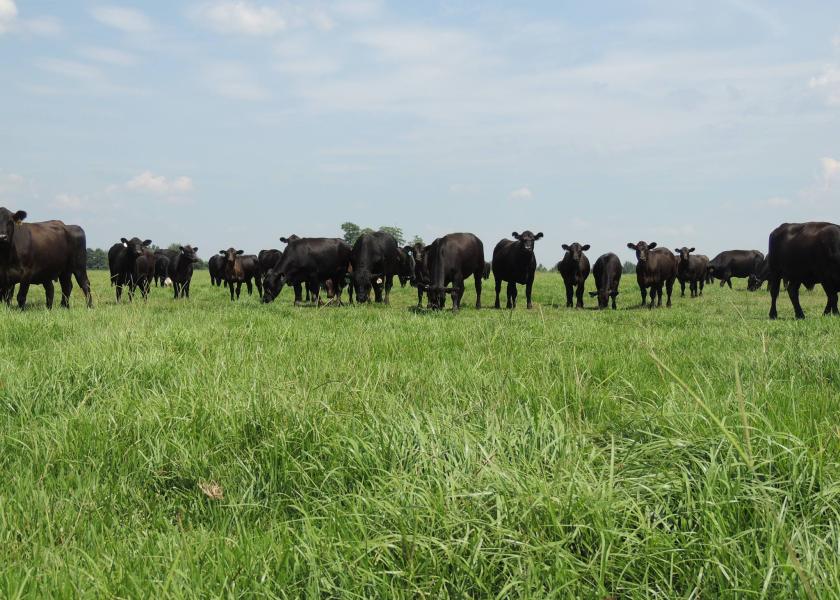How to Protect Your Ranch and Prevent Cattle Theft

The pasture was ridden and re-ridded. Gates, fences, and water gaps were checked to make sure the cattle hadn’t gotten out. Three different people counted the herd – all three came up 60 head short.
“They weren’t just in another pasture,” says Andee Leininger of Leininger Ranch. “They were gone.”
It was a shocking blow to Leininger, a young cattlewoman helping her parents on a family ranch located south of La Junta, Colorado. Facing cattle theft while attempting to continue a family business is devastating, Leininger says.
“We have been on that place for 25 years and have never had anything stolen,” Leininger said. “It definitely wakes you up.”
Weeks later, by some miracle, the stolen cattle returned.
“They just showed up in the pasture [Wednesday] morning,” Leininger says. “We don’t know where they’ve been for three or four weeks, how they got where they did or how they got back.”
Cattle theft could increase
It was a miraculous turnout for Leininger Ranch. However, with the economy in a downturn and increasing panic about the COVID-19 pandemic, cattle and agricultural property theft could increase, says Ben Eggleston, special ranger for the Texas and Southwestern Cattle Raisers Association.
“Every time there is a downswing or times get hard, some people will revert to stealing,” says Eggleston, who is actively investigating the theft of 262 stocker calves in Lipscomb County, Texas. “If things don’t start picking up, people will start picking things up.”
That sentiment is echoed by CJ Fell, a criminal investigator for the Nebraska Brand Committee.
“We have not seen an uptick in cases yet, but I suspect it is going to happen,” Fell says. “With any emergency situation, people find opportunities to take advantage of other people.”
Both livestock law enforcement officers said ranchers should take additional steps to protect their livestock and to make theft more difficult. Ultimately, cattle theft can be easy to accomplish, Fell admitted.
“It doesn’t take much knowledge or experience to gather some cattle and load them,” Fell says. “Once you’ve got them loaded, it’s just a matter of drive time to get out of state to a non-brand area.”
How to protect your herd from theft
The best way cattle producers can prevent theft is to keep accurate records, Fell says. In the case of a partnership, partners need to brand their cattle differently and jointly document which cattle belong to which partner.
“Things have got to be down on paper,” Fell says. “That is the only way these producers can protect themselves.”
Fell and Eggleston offer the following advice to deter theft:
- Lock gates, pastures and corrals
- Permanently identify livestock and equipment (consider marking tack with your driver’s license number)
- Take pictures of equipment
- Consider branding cattle
A brand is the easiest way to trace livestock back to their rightful owners. Without a brand, cattle are an easy target for theft, Eggleston says.
“That is prima facia evidence that registered brand on that livestock belongs to that person,” Eggleston says.
The culprit of the Leininger Ranch incident was an individual who knew the ranch well, Leininger says, adding that the cattle were more than a mile from the closest road. Unfortunately, victims of agricultural theft usually know the culprit, Eggleston says.
“I hate to think of the percentage of cases where we’ve had a successful conclusion and you find out you know who stole from you,” says Eggleston, who has spent 30 years in law enforcement and 15 years as a TSCRA special ranger. “You have to know who you are doing business with.”
If ranchers suspect they are the victim of cattle theft, it is imperative to immediately alert authorities to increase the chances of recovering stolen property, Fell adds.
On Leininger Ranch, there will be more people to check cattle and keep a closer watch in the future, Leininger says, adding that she will probably scale back some of her off-ranch commitments to help her parents.
“People are following in their family’s footsteps by raising cattle,” Eggleston says. “It is very personal when somebody steals from something that is a legacy.”







